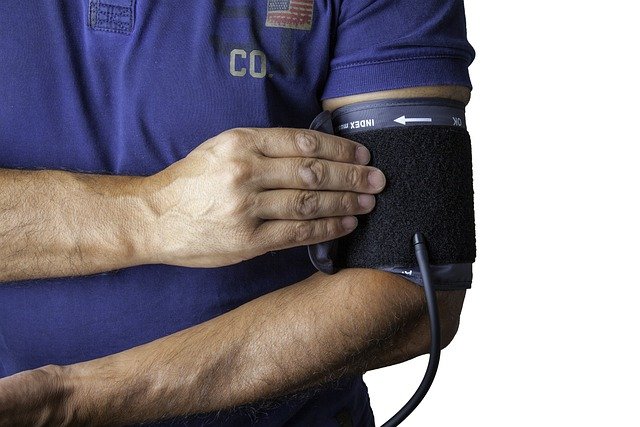Dementia Test: How Cognitive Evaluations Are Used in Diagnosis
A dementia test typically involves cognitive evaluations performed by qualified healthcare professionals to assess functions such as memory, attention, and problem-solving. These tests are part of a broader medical review and may support the diagnostic process based on individual health history and clinical judgment.

What Are the Primary Types of Dementia Tests Available?
Healthcare professionals use several standardized cognitive assessment tools to evaluate potential dementia symptoms. The Mini-Mental State Examination (MMSE) remains one of the most widely used screening tools, testing orientation, memory, attention, and basic cognitive functions. The Montreal Cognitive Assessment (MoCA) offers more sensitivity for detecting mild cognitive impairment and early-stage dementia. The Clock Drawing Test evaluates executive function and visual-spatial skills by asking patients to draw a clock face showing a specific time. Additionally, the Mini-Cog combines a three-word recall test with clock drawing for quick screening in clinical settings.
How Does the 30-Question Dementia Test Work?
The 30-point Mini-Mental State Examination serves as a structured assessment covering multiple cognitive domains. Questions progress from basic orientation tasks like stating the current date and location to more complex challenges involving memory recall, attention, and language comprehension. Patients might be asked to repeat phrases, follow written instructions, perform simple calculations, or recall three unrelated words after a brief delay. Each correct response earns points, with scores below 24 typically indicating potential cognitive impairment requiring further evaluation. The test takes approximately 10-15 minutes to complete and provides healthcare providers with standardized baseline measurements for tracking cognitive changes over time.
What Role Do Early Dementia Tests Play in Diagnosis?
Early cognitive testing serves multiple critical functions in dementia care management. These assessments help identify subtle cognitive changes before they significantly impact daily functioning, potentially allowing for earlier intervention strategies. Early detection enables patients and families to make informed decisions about future care planning, legal arrangements, and lifestyle modifications while cognitive abilities remain relatively intact. Additionally, identifying cognitive decline in its initial stages may qualify patients for clinical trials or experimental treatments that show promise for slowing disease progression. Regular cognitive testing also establishes important baseline measurements that help healthcare teams monitor the effectiveness of treatments and track disease progression accurately.
How Are Alzheimer’s and Dementia Testing Different?
While Alzheimer’s disease represents the most common form of dementia, testing approaches differ based on the specific type of cognitive impairment suspected. Alzheimer’s testing often includes specialized assessments focusing on episodic memory loss, which typically appears as the earliest symptom. Frontotemporal dementia testing emphasizes behavioral changes and executive function problems rather than memory issues. Vascular dementia assessments concentrate on cognitive patterns consistent with stroke-related brain changes. Lewy body dementia testing incorporates questions about visual hallucinations, sleep disturbances, and motor symptoms alongside cognitive evaluation. Healthcare providers select appropriate testing batteries based on presenting symptoms, medical history, and clinical observations to ensure accurate differential diagnosis.
What New Technologies Are Advancing Dementia Testing?
Modern healthcare increasingly incorporates digital tools and advanced technologies into dementia assessment protocols. Computerized cognitive testing platforms offer standardized administration, precise timing measurements, and detailed performance analytics that traditional paper-and-pencil tests cannot provide. Virtual reality applications create immersive environments for testing spatial navigation and memory in realistic settings. Smartphone-based cognitive apps enable remote monitoring and frequent assessment intervals between clinical visits. Artificial intelligence algorithms analyze speech patterns, typing rhythms, and other digital biomarkers that may indicate early cognitive changes. Brain imaging technologies like PET scans can detect amyloid plaques associated with Alzheimer’s disease, while advanced MRI techniques identify structural brain changes linked to different dementia types.
Understanding Healthcare Provider Options for Dementia Testing
Multiple healthcare settings provide comprehensive dementia testing services across the United States. Primary care physicians often conduct initial screenings and coordinate referrals to specialists when indicated. Neurologists specialize in brain-related conditions and offer detailed cognitive assessments alongside neurological examinations. Geriatricians focus specifically on age-related health issues and maintain expertise in age-associated cognitive changes. Memory care centers provide multidisciplinary teams including neuropsychologists, social workers, and specialized nurses for comprehensive evaluations.
| Provider Type | Services Offered | Key Features |
|---|---|---|
| Primary Care Physicians | Initial screening, basic cognitive tests | Convenient access, familiar provider relationship |
| Neurologists | Specialized testing, brain imaging coordination | Advanced expertise, comprehensive neurological evaluation |
| Memory Care Centers | Multidisciplinary assessment, ongoing support | Team-based approach, specialized resources |
| Neuropsychologists | Detailed cognitive testing, psychological evaluation | Extensive testing batteries, behavioral assessment |
The diagnostic process extends beyond cognitive testing to include comprehensive medical evaluations, laboratory tests, and imaging studies that help rule out other conditions causing cognitive symptoms. Healthcare providers consider family history, medication effects, depression, vitamin deficiencies, and other treatable conditions that may mimic dementia symptoms. Building strong relationships with local healthcare providers who understand your concerns and medical history creates the foundation for effective long-term cognitive health management.
Understanding dementia testing procedures helps reduce anxiety surrounding the evaluation process while emphasizing the importance of professional assessment for concerning cognitive changes. These comprehensive evaluations provide essential information for developing appropriate treatment plans, accessing support services, and making informed decisions about future care needs. Early and accurate testing remains the cornerstone of effective dementia care management.
This article is for informational purposes only and should not be considered medical advice. Please consult a qualified healthcare professional for personalized guidance and treatment.




